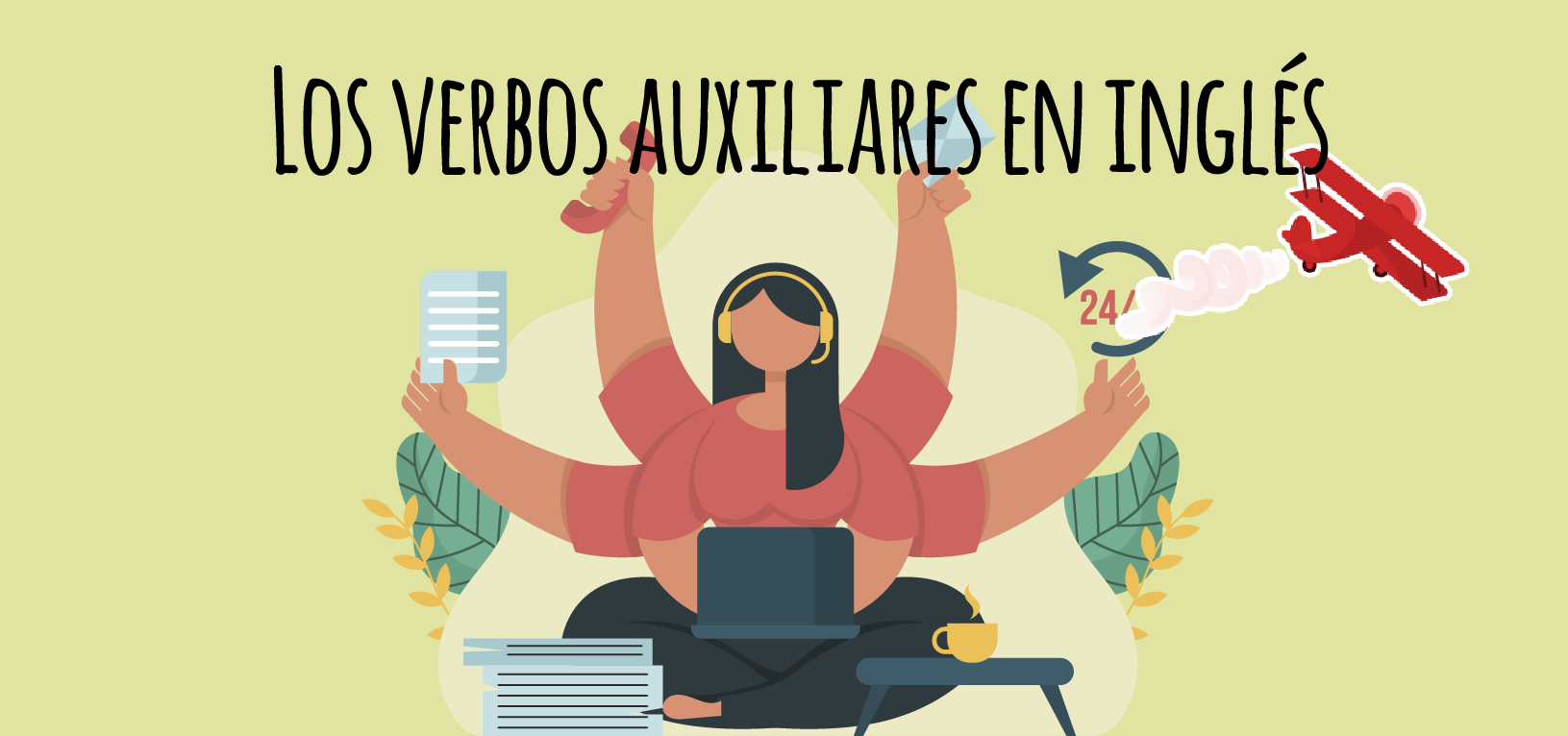Auxiliary verbs in English

The auxiliary verb is a verb that is used as a way to form the mood, time, and voice of other verbs within a sentence. This is something that is commonly seen in the English language and is essential for anyone looking to create sentences that sound grammatically correct.
ÍNDICE DE CONTENIDOS
In this article, we will look at the auxiliary verb in much more detail and give you the opportunity to start forming sentences with them that will make you sound much more like a native speaker of the language.
Auxiliary verbs always precede the main verb
When used as auxiliary verbs, the verbs BE, DO, and HAVE are conjugated for tense and person. When the auxiliary verb is BE, the main verb that follows takes the form of a present participle or an infinitive.
The main auxiliary verbs in English
An auxiliary verb is used with a main verb to help express the tense, mood, or voice of the main verb. The main auxiliary verbs are to be, to have and to do. They appear in the following forms: To Be: am, is, are, was, were, being, been, will be.
The verb ” To be”
The verb be can be used as an auxiliary and complete verb. As an auxiliary we use this verb for compound tenses and the passive voice. Note that be is an irregular verb :
Simple present:
- I am, he/she/it is, we/you/they are
Yo soy, el / ella / es, nosotros / ustedes / ellos somos
Past simple:
- I/he/she/it was, we/you/they were
Yo / él / ella / era, nosotros / ustedes / ellos eran
Past participle:
- Been
It can be said that in the following sentences be is an auxiliary because it is followed by another verb (the complete verb). (For progressive forms, use the “-ing” form of the complete verb; for passive voice, use the past participle of the complete verb).
Auxiliary verb: to do
If we are looking to know the auxiliary verbs in English and their meaning, the verb to do may confuse us a bit. As an auxiliary, this verb is used in the formation of negative and interrogative sentences in both the present and the past and has no meaning in itself.
- The question in the present tense: What do you do for a living?
¿A qué te dedicas?
- Interrogative in the past tense: Did she break that window?
¿Ella rompió la ventana?
- Negative in present simple: I don’t like dancing
No me gusta bailar
- Negative in the past simple: She did not break that window
Ella no rompió esa ventana
Auxiliary verb in English: to have
The verb to have in English means “to have” when it is used as the main verb and “to have” when it is used as an auxiliary in the formation of the compound tenses of the active and passive voice.
In the active voice this auxiliary forms the perfect tenses and is conjugated in the present (have, has) or past (had) combined with the main verb.
- Present: You have a beautiful smile
Tienes una hermosa sonrisa
- Past: He has done some research on the subject
Ha investigado sobre el tema
In the passive voice to have is conjugated in the present or past and is combined with the verb to be and the main verb of the sentence in participle.
- Present: Something has to be done to solve the problem
Tiene que hacerse algo para solucionar el problema
- Past: Some research has been done on that subject
Ha sido realizada una investigación sobre el tema
Auxiliary verb in English: will
Will does not change in time, person or number . The verb will is a modal verb that also works as an auxiliary verb in English in the formation of the future simple (accompanied by another verb):
- Affirmation: I will visit my best friend next week
La semana que viene visitaré a mi mejor amigo
- Denial: I won’t go to the party next month
No iré a la fiesta el mes que viene
Auxiliary verb in English: would
The verb would is, as will, a modal verb. It does not vary in person, time and number. As part of the auxiliary verbs in English, it is used for hypothetical situations of the second conditional. It appears in affirmative, negative and interrogative sentences:
- Affirmation: I would love to meet him someday
Me encantaría conocerlo algún día
- Denial: I came by taxi. He told me he wouldn’t drive me
Vine en taxi. El me dijo que no conduciría
- Question: Would you sell your house for one million dollars?
¿Venderías tu casa por un billón de dólares?
Modal verbs
There is an additional set of auxiliary verbs known as modal verbs or modal auxiliary verbs. These are combined with other verbs to express need, possibility, intention or ability. The modal auxiliary verbs are must, should, will, should, would, should (to), can, could, may, and might. For example:
- You must act promptly.
Debe actuar con prontitud.
- Can you speak Spanish?
¿Puedes hablar español?
- I would go if I could afford it.
Iría si pudiera pagarlo.
- He said he might reconsider his decision.
Dijo que podría reconsiderar su decisión.
- I ought to visit my family.
Debería visitar a mi familia.
- We should get to London before midday.
Deberíamos llegar a Londres antes del mediodía.
- May I come in?
¿Puedo pasar?
Auxiliary verbs in English: exceptions
Although some of the sentences with auxiliary verbs in English that we can find are interrogatives, there are cases in which the auxiliary verb does not appear. The omission occurs in the interrogative sentences that are introduced by the interrogative pronouns what (qué) or who (quién) . This is because the pronoun itself functions as the subject of the verb, making the auxiliary unnecessary. Who came? (¿Quién vino?) What happened? (¿Qué pasó?)


